- Home
- Addiction Treatment
- Dual Diagnosis
- Dual Diagnosis: Anxiety
Dual Diagnosis: Anxiety
Many people who use substances have mental health conditions.
In fact, between 18-37% of people with anxiety also have a substance use disorder.
This is a huge amount.
The link between anxiety and addiction is important and needs to be considered in relation to accessing rehabilitation treatment.
Dual Diagnosis – What Is It?

A dual diagnosis, also known as a comorbid condition, is where two mental health conditions exist at the same time.
In the field of addiction, it’s very common for this to occur.
It could be that the person has a mental health condition such as anxiety, depression, bipolar disorder, or schizophrenia alongside an addiction to alcohol, cannabis, or cocaine, for instance.
A dual diagnosis would also be given where a person was addicted to heroin while having an eating disorder.
There are many reasons mental health conditions overlap.

Often, it’s thought that the background factors in causing them to develop are very similar ,so it’s not a big jump for a second condition to arise.
Also, the presence of one condition can increase the likelihood of another developing.
Common background factors that make both addiction and mental health symptoms more likely include:
- A genetic predisposition.
- Other family members having similar conditions.
- Environmental influences.
- Personality (i.e. a person with low self-esteem can be more likely to become anxious or drink).
- The experience of trauma.
- The presence of other mental health conditions.
The Link Between Addiction And Anxiety
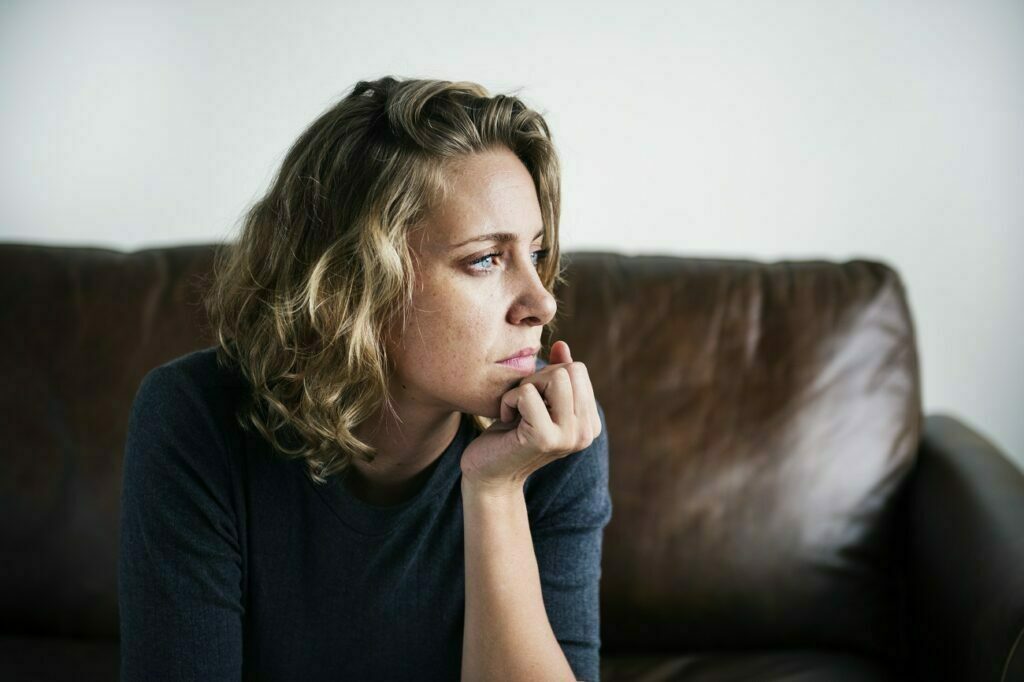
Addiction and anxiety are well researched and evidence reveals that the two are highly correlated.
One study reported that the co-occurrence of these disorders is associated with greater symptom severity, higher levels of disability, and poorer course of illness.
Unfortunately, when both conditions exist there is also an increase of suicidal behaviours.
This demonstrates how important it is that people who have both conditions are supported.
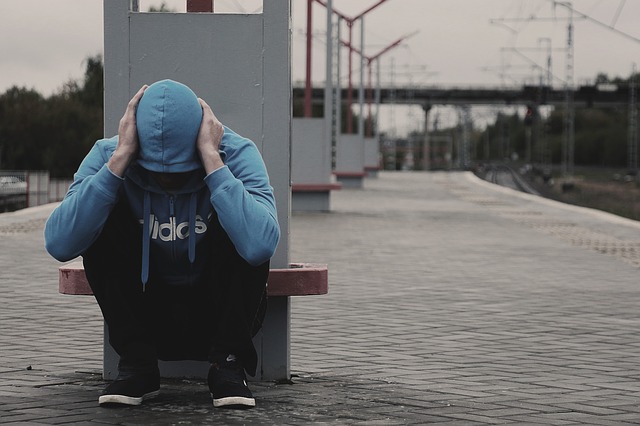
Life can become very uncomfortable and distressing and in order to manage wellbeing effectively, specialist treatment from experienced staff is important.
The most common psychiatric disorders associated with substance use disorders are:
- Depression
- Anxiety
- Schizophrenia
- Antisocial personality disorder
Interestingly, even the brain’s physical structure can influence a person in developing an addiction.
What Does It Mean To Self-Medicate?
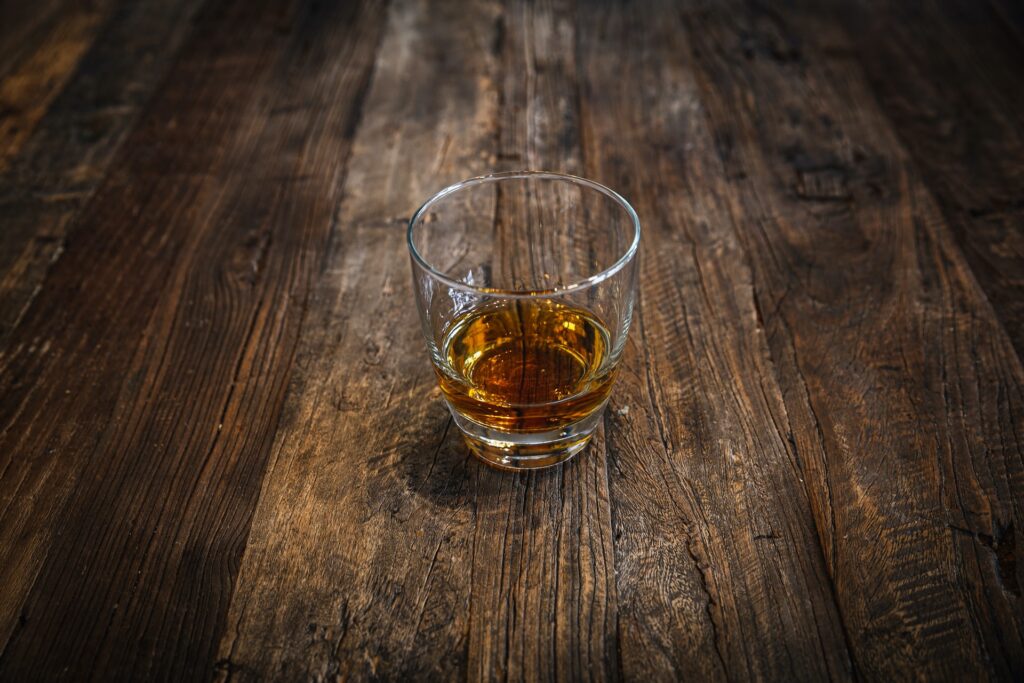
A person with anxiety is more likely to turn to alcohol and drugs to try and manage uncomfortable symptoms related to anxiety.
For instance, if they’re feeling tense, stressed, and worried, a person might have a drink or smoke a joint to relax.
Of course, many feel that this helps, and as such substance abuse becomes a coping mechanism.
Unfortunately, it’s an unhealthy one which can cause a lot of damage.
While some substances might ease anxious symptoms in the immediate moment, this is short-lived.
Actually, the way psychoactive substances affect brain chemistry and hormonal balances means that in the long-run anxiety is exacerbated.
Not only that, but the more people rely on addictive substances to ease mental health, the more they run the risk of developing an addiction.
Which Came First?
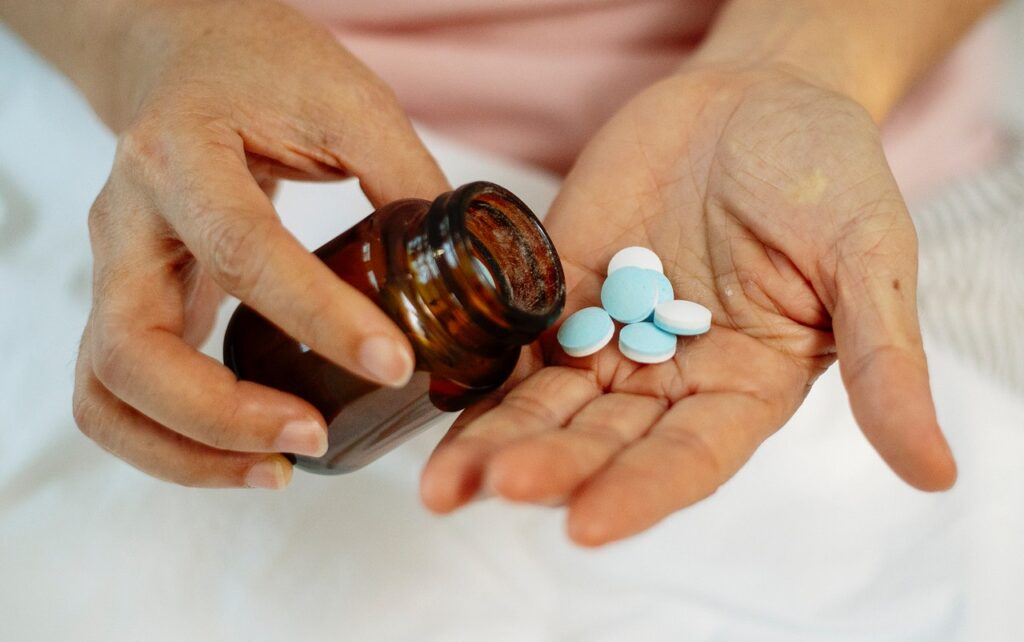
Some people might not be able to identify which came first: the anxiety or the substance use.
Where substances might have been used first, these increase the risk of a person developing mental health issues.
Anxiety and other mental health conditions can also be triggered where people are predisposed to them.
Do You Have Anxiety?
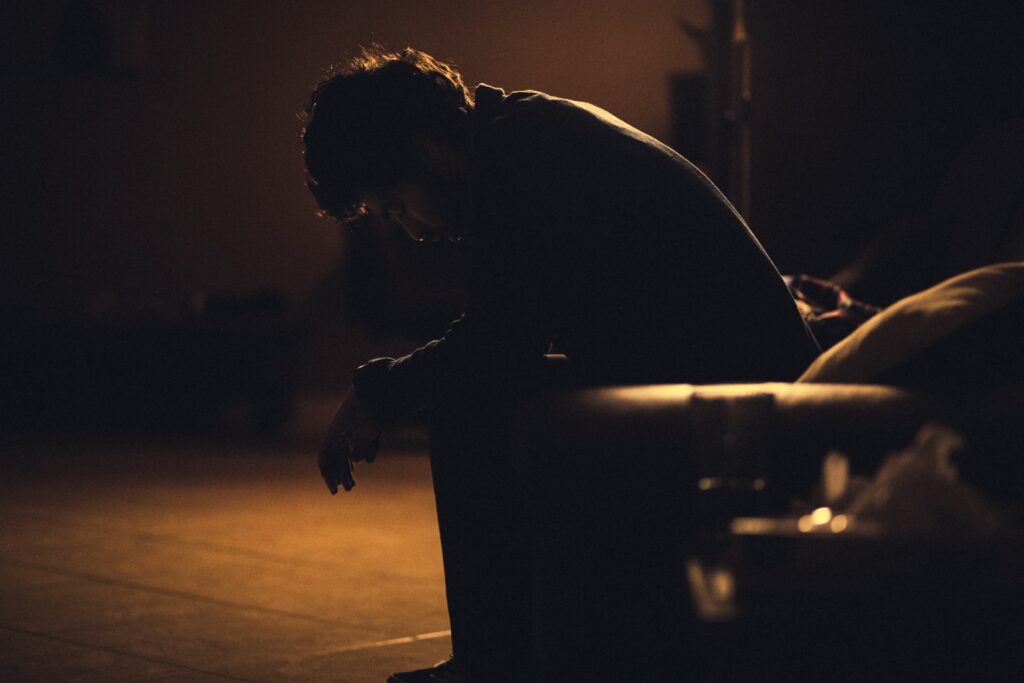
Generalised anxiety is the most common type of anxiety, but people might also suffer from social anxiety, PTSD, phobias or panic disorder.
The symptoms of generalized anxiety tend to include:
- Feeling tense and stressed.
- Excessive worrying and agitation.
- Restlessness, feelings of fear and being overwhelmed.
- Cyclical thoughts.
- Feelings of helplessness and despair.
- Shallow breathing, racing heart and heart palpitations.
- Nausea and sickness.
- IBS and stomach complaints.
- Loss of appetite.
- Sleep disturbance and insomnia.
Many people will have anxiety without even realising.
High-functioning anxiety is where you might have all these feelings but on the face of it, you seem organised, productive and as though everything is fine.
Anxiety can be very uncomfortable to live with.
If you’re experiencing any of these symptoms, there are treatments that address both the causes and symptoms.
Do You Have An Addiction?

Many people use alcohol or drugs and won’t realise they have developed problematic use.
Often, it’s not until trying to stop or going a few days without the substance that suspicion might arise.
Unhealthy drinking habits are especially difficult to spot because alcohol is legal and so readily available, as well as being socially accepted and encourage amongst peers.
Signs that you’ve developed an addiction include:
- Trying to stop using alcohol and drugs, but not being able to.
- Being secretive or lying about how you use substances.
- Manipulating or lying to get the substance.
- Feeling anxious, aggressive, low or moody when you don’t have alcohol or drugs.
- Thinking about the substance most of the time.
- Participating in risky behaviours when under the influence (such as driving).
- Experiencing withdrawal symptoms, such as moodiness, cravings, sweating, shaking, nervousness.

Many substances really exacerbate anxiety -consider a basic, legal stimulant: caffeine.
Drinking coffee can increase feelings of anxiety, such as restlessness, heart palpitations and feeling hyper-alert, which can all trigger anxiety and panic.
It’s only natural if caffeine can exacerbate anxiety that stronger psychoactive substance will cause even more pronounced effects.
How Is A Dual Diagnosis Identified?

It can be difficult to identify a dual diagnosis of addiction and anxiety, especially as either condition can create the other.
On entering a rehab clinic, you would undergo a couple of psychological assessments and these would make it clear whether you have both conditions.
A dual diagnosis can only be officially given by a professional such as a psychiatrist.
Different substances obviously have different effects and this also needs to be considered.
Some people might think they have anxiety, for instance, but actually it’s an effect of the substance abused – once the substance is removed, the anxious symptoms disappear.
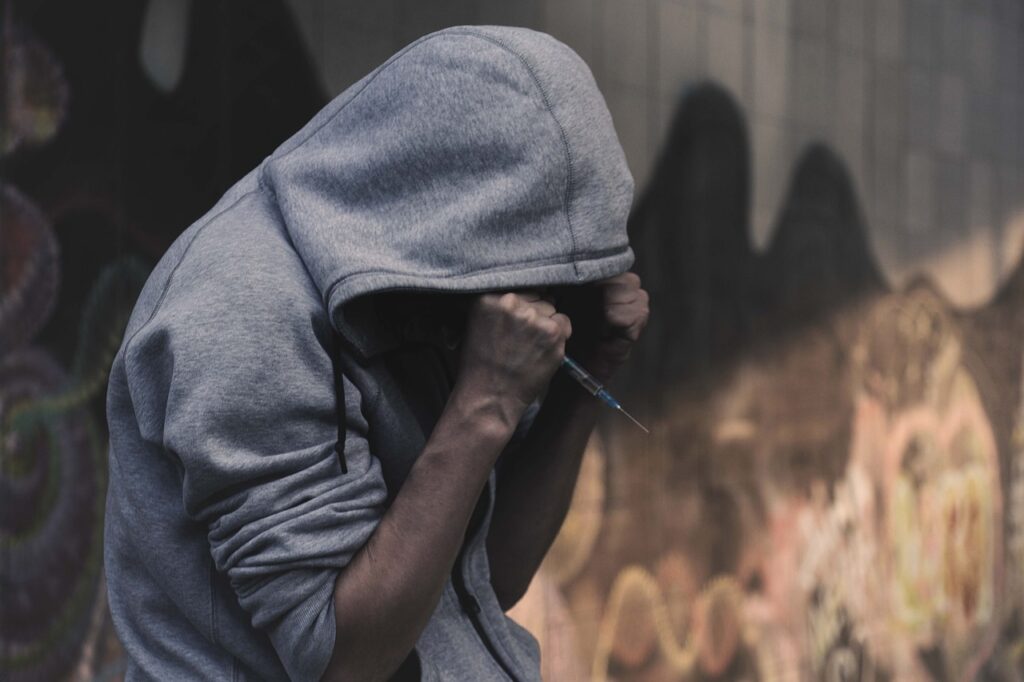
Alcohol use by a person with schizophrenia will present differently to a person with depression using heroin; all these factors need to be weighed up.
It’s the professional’s job to identify and understand how addiction and anxiety are exacerbating each other.
Overall, however, research shows that anxiety increases substance cravings.
There are some questions you can ask yourself that suggest your chances of a dual diagnosis are more likely:
- Does anyone in your family have mental health conditions, anxiety, or an addiction to substances or a behavioural addiction?
- Do you drink or take drugs to manage unpleasant feelings, memories or reactions to challenges?
- Have you noticed that anxiety affects your drinking levels?
- Have you found it difficult to stop using drugs or drinking because of how anxiety influences you?
If you think you might have a dual diagnosis and want to know more about your treatment options, contact the Rehab Recovery team.
What To Do If Someone You Love Has A Dual Diagnosis With Anxiety

If you’re worried that someone you love is struggling with both addiction and anxiety, there are ways you can helpfully support them.
Firstly, though, it’s important to bear in mind that when someone has an addiction, you need to develop consistent boundaries.
This will keep the relationship as healthy as possible, so be sure to look after yourself as well as supporting your loved one.
Many people with addictions will be in denial of the problem or won’t want to stop using the substance.

In such cases, it’s important to focus on positively reinforcing their healthy behaviours and to try and develop the activities you can share.
Going for walks together, doing art, or doing an activity of shared interest means you create a healthy narrative in your relationship.
It supports them to do something positive, and also eases anxious symptoms.
Finally, find out what local treatment options there are for anxiety and addiction – it can be useful to mention this in a non-judgemental way at a point when your loved one is clear-headed.
What Treatment Is Available For A Diagnosis Of Addiction And Anxiety?

Research makes it clear that when entering treatment, patients should be assessed to identify a dual diagnosis.
Where both anxiety and addiction exist, treatment needs to be more complex.
Rehab staff need to be aware of a dual diagnosis so they can put an appropriate treatment plan in place for you.
There are assessments that you’ll undergo during a rehab admission that will reveal whether you have an anxiety disorder as well as addiction if you’re not already diagnosed.
The Physical
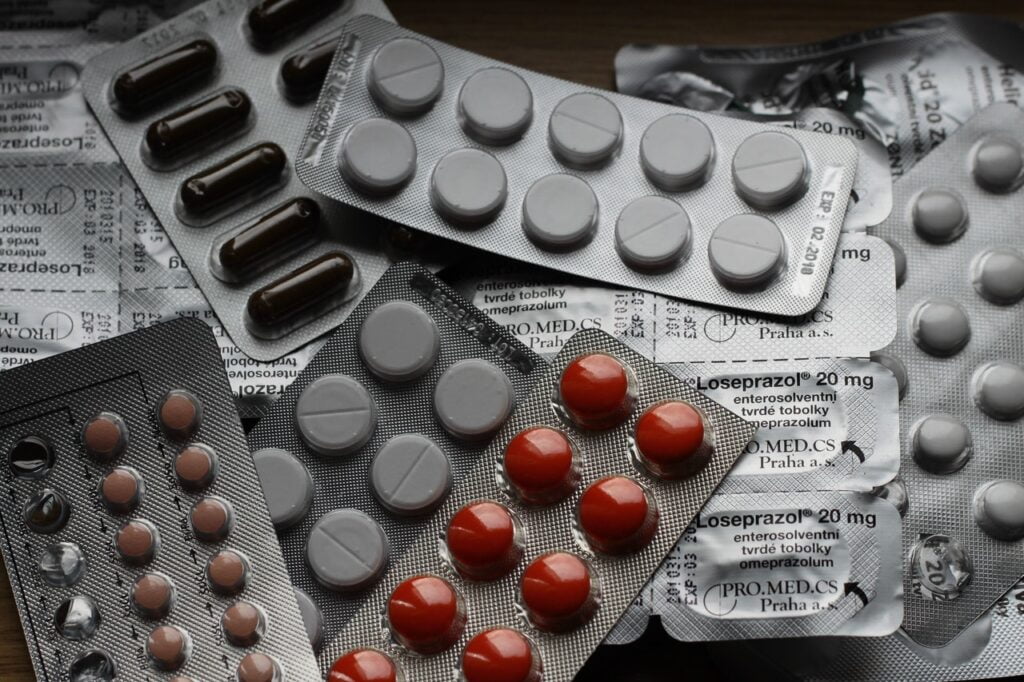
In relation to the physical, you might be prescribed selective serotonin reuptake inhibitors (SSRIs) to treat anxiety.
Benzodiazepines will be avoided as they can cause addiction.
Depending on the substance you’re addicted to, you might be offered another type of medication to wean you off the substance in a safe way so that withdrawal symptoms are managed.
The Psychological

Therapies are widely used in the treatment of anxiety and addiction.
Cognitive Behavioural Therapy is an evidence-based therapy proven to effectively treat people.
Through it you’ll learn how to manage the automatic thoughts that fuel unhealthy behaviours linked to both conditions.
At rehab, you’ll also participate in motivational interviewing, which is a therapy that helps inspire you to remain focused on achieving and maintaining sobriety.
What Other Approaches Are Used?

Peer groups facilitated by staff are widely used at rehab.
They often follow 12 Step and SMART guidelines.
These offer you helpful tips from people in the same situation as you on how to manage things.
You’ll also benefit from the social connection.
Alternative therapies are also widely used to support your healing journey.
These offer excellent spaces to learn alternative ways to manage anxiety and cravings.
Activities might include yoga, equine therapy, mindfulness, art and music therapy, reiki, and acupuncture.
Final Thoughts

It’s really common for people to experience both addiction and anxiety as a dual diagnosis condition.
While substances might be used to ease uncomfortable symptoms of anxiety, they worsen the condition in the long-term.
Although the two conditions can be more difficult to treat, with an official diagnosis, a tailored programme at a rehab clinic can easily be put in place.
Recovery is possible and people go on to manage both conditions in a healthy way.
To find out about your local treatment options, contact Rehab Recovery today.


